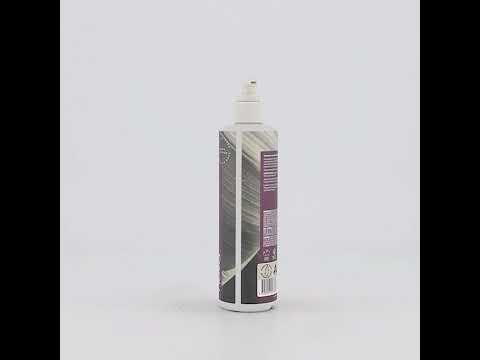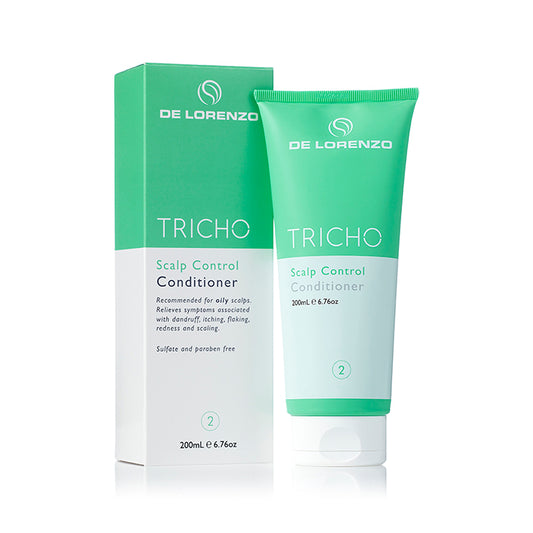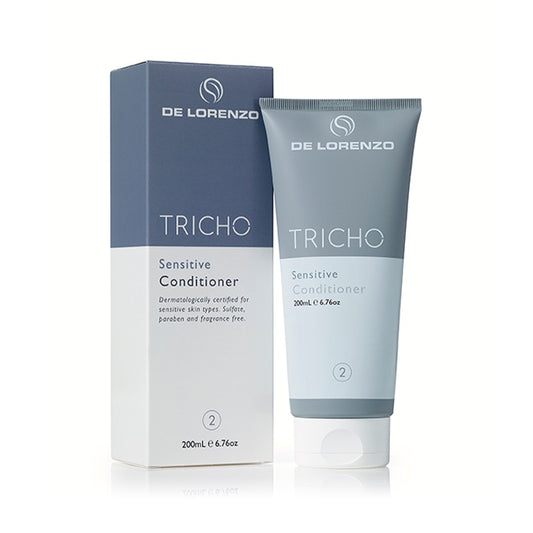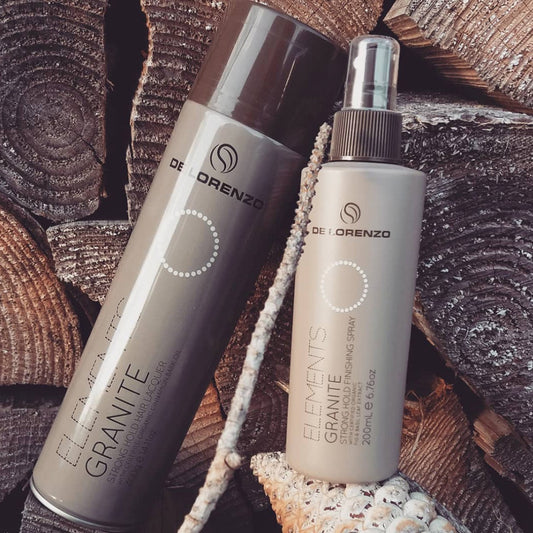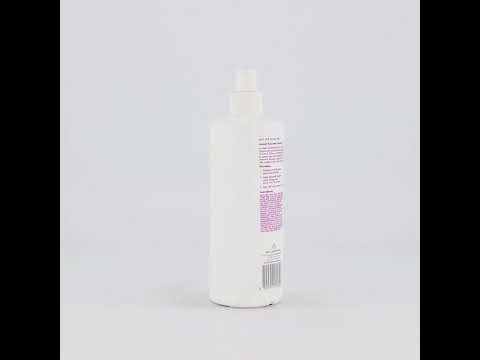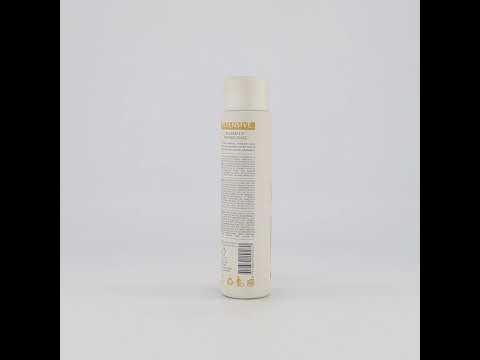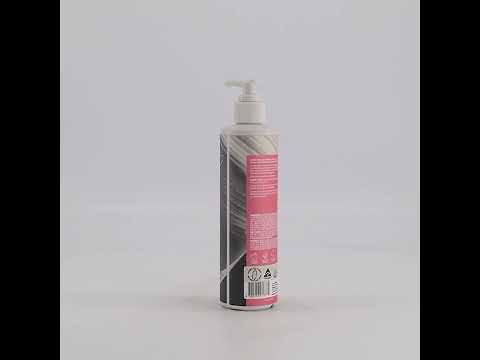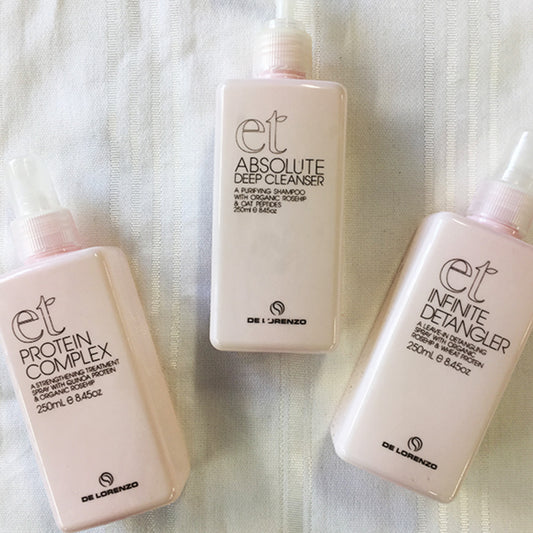-
De Lorenzo Novafusion Beige Blonde Shampoo 250ml
Regular price $29.95Sale price $29.95 Regular priceUnit price per$36.75Sale -
De Lorenzo Create Balm Natural 500ml
Regular price $69.95Sale price $69.95 Regular priceUnit price per$105.55Sale -
De Lorenzo Create Balm Chemically Treated 500ml
Regular price $69.95Sale price $69.95 Regular priceUnit price per$105.55Sale -
De Lorenzo Create Fix Neutraliser 500ml
Regular price $69.95Sale price $69.95 Regular priceUnit price per$103.10Sale -
De Lorenzo Novafusion Intense Indigo 200ml
Regular price $29.95Sale price $29.95 Regular priceUnit price per$36.75Sale -
De Lorenzo Novafusion Plum 250ml
Regular price $29.95Sale price $29.95 Regular priceUnit price per$36.75Sale -
De Lorenzo Bond Defence Shampoo 240ml
Regular price $29.95Sale price $29.95 Regular priceUnit price per$40.50Sale -
De Lorenzo Bond Defence Conditioner 240ml
Regular price $29.95Sale price $29.95 Regular priceUnit price per$40.50Sale -
De Lorenzo Bond Defence Shampoo 960ml
Regular price $69.95Sale price $69.95 Regular priceUnit price per$88.45Sale -
De Lorenzo Bond Defence Conditioner 960ml
Regular price $69.95Sale price $69.95 Regular priceUnit price per$88.45Sale -
De Lorenzo ALLEVI8 Conditioner 375ml
Regular price $29.95Sale price $29.95 Regular priceUnit price per$36.25Sale -
De Lorenzo ACCENTU8 Conditioner 375ml
Regular price $29.95Sale price $29.95 Regular priceUnit price per$36.25Sale -
De Lorenzo ILLUMIN8 Blonde Conditioner 375ml
Regular price $29.95Sale price $29.95 Regular priceUnit price per$36.25Sale -
De Lorenzo Moisture Balance Revive Conditioner 275ml
Regular price $24.95Sale price $24.95 Regular priceUnit price per$41.70Sale -
De Lorenzo Moisture Balance Intense Conditioner 275ml
Regular price $24.95Sale price $24.95 Regular priceUnit price per$41.70Sale -
De Lorenzo Control Revive Conditioner 275ml
Regular price $24.95Sale price $24.95 Regular priceUnit price per$41.70Sale -
De Lorenzo Scalp Control Conditioner 200ml
Regular price $24.95Sale price $24.95 Regular priceUnit price per$36.75Sale -
De Lorenzo Tricho Sensitive Conditioner 200ml
Regular price $29.95Sale price $29.95 Regular priceUnit price per$37.95Sale -
De Lorenzo Moisture Balance Revive Conditioner 960ml
Regular price $69.95Sale price $69.95 Regular priceUnit price per$88.45Sale -
De Lorenzo Moisture Balance Intense Conditioner 960ml
Regular price $69.95Sale price $69.95 Regular priceUnit price per$92.15Sale -
De Lorenzo Densify 200ml
Regular price $21.95Sale price $21.95 Regular priceUnit price per$31.95Sale -
De Lorenzo Grit Matte Styling Paste 100g
Regular price $24.95Sale price $24.95 Regular priceUnit price per$31.95Sale -
De Lorenzo Granite Non Aerosol 200ml
Regular price $19.95Sale price $19.95 Regular priceUnit price per$24.55Sale -
-
De Lorenzo Control Revive Conditioner 960ml
Regular price $69.95Sale price $69.95 Regular priceUnit price per$92.15Sale -
De Lorenzo REJUVEN8 Treatment 475ml
Regular price $47.95Sale price $47.95 Regular priceUnit price per$74.95Sale -
Natural Look Intensive Balsam pH 2.5 Finishing Rinse 1L
Regular price $23.95Sale price $23.95 Regular priceUnit price per$28.20Sale -
Natural Look Intensive Balsam pH 2.5 Finishing Rinse 375ml
Regular price $9.95Sale price $9.95 Regular priceUnit price per$16.50Sale -
De Lorenzo Novafusion Colour Care Conditioner 250ml
Regular price $29.95Sale price $29.95 Regular priceUnit price per$36.75Sale -
De Lorenzo Novafusion Silver Conditioner 250ml
Regular price $29.95Sale price $29.95 Regular priceUnit price per$36.75Sale -
De Lorenzo Novafusion Natural Tones Shampoo 250ml
Regular price $29.95Sale price $29.95 Regular priceUnit price per$36.75Sale -
De Lorenzo Instant Restructurant Refills 15 x 20ml
Regular price $99.95Sale price $99.95 Regular priceUnit price per$178.15Sale -
De Lorenzo Control Intense Conditioner 960ml
Regular price $69.95Sale price $69.95 Regular priceUnit price per$86.00Sale -
De Lorenzo Novafusion Silver Shampoo 250ml
Regular price $29.95Sale price $29.95 Regular priceUnit price per$36.75Sold out -
De Lorenzo Novafusion Cool Natural Shampoo 250ml
Regular price $29.95Sale price $29.95 Regular priceUnit price per$36.75Sold out -
De Lorenzo Novafusion Rose Gold Shampoo 250ml
Regular price $29.95Sale price $29.95 Regular priceUnit price per$36.75Sold out -
De Lorenzo Novafusion Intense Copper 200ml
Regular price $29.95Sale price $29.95 Regular priceUnit price per$36.75Sold out -
 Sold out
Sold outDe Lorenzo Novafusion Grey 200ml
Regular price $29.95Sale price $29.95 Regular priceUnit price per$36.75Sold out -
De Lorenzo Novafusion Intense Brunette 200ml
Regular price $29.95Sale price $29.95 Regular priceUnit price per$36.75Sold out -
De Lorenzo Absolute Deep Cleanser 250ml
Regular price $23.95Sale price $23.95 Regular priceUnit price per$41.65Sold out







